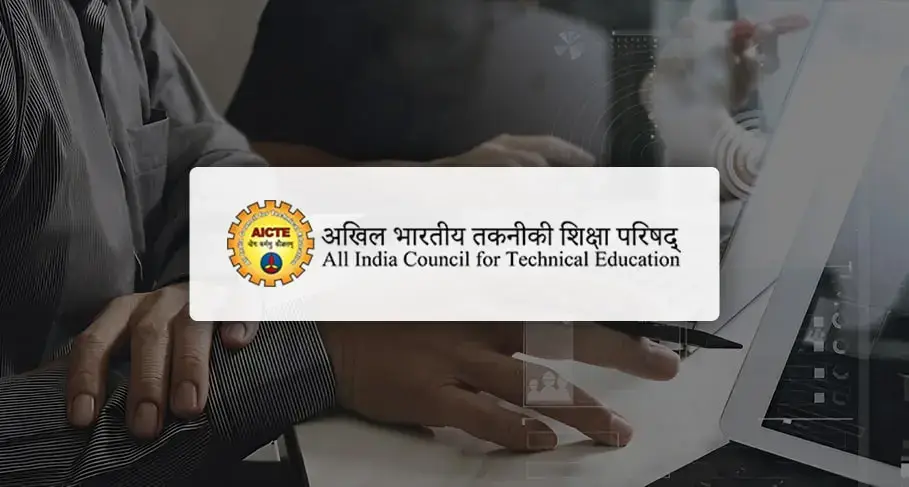To support the growing drone industry and meet the demand for skilled workers in the sector, the All India Council for Technical Education (AICTE) has partnered with AVPL International, a Directorate General of Civil Aviation-certified drone manufacturer and training company, to establish 47 AVPL AeroVision Drone Labs in AICTE-approved institutions across the country.
The labs, which will open in January 2025, will provide students with credit-based courses and hands-on training in drone design, assembly, programming, and operation. Over 25,000 candidates will be trained and equipped with practical knowledge and cutting-edge skills to satisfy the industry’s requirements. The effort results from significant technical breakthroughs in this field and a realization of the importance that educational institutions play in supporting innovation, research, and growth in developing sectors.
Prof. T.G Sitharam, AICTE Chairman, stated:
The AICTE identified the need for infrastructure development and capacity building to support the growth of the drone ecosystem. The 47 AICTE-approved institutions were selected based on specific criteria evaluated by an expert review committee. The factors considered included institutional NIRF rankings, performance in previous AICTE initiatives, status as a government institution and overall institutional quality. Institutions in rural areas have been given priority to guarantee the initiative’s success and applicability. This will ensure the programme’s success by addressing real-world challenges in agriculture and maximizing drone technology’s impact in these regions.
Collaborations with other industry partners aim to expand the programme’s reach to 200 universities by 2025-2026.
Sitharam added:
The labs will provide students with hands-on, real-world experience that aligns with the rapidly evolving drone industry. This integration will enable students to work on live problems, enhancing their understanding of drone operations and applications across agriculture, infrastructure, and surveillance sectors. The courses will ensure that theoretical knowledge and practical skills are incorporated into students’ academic progress.
To integrate these labs into the current curriculum, the AICTE plans to offer credit-based courses, aligning with the National Credit Framework (NCrF). Sitharam further mentioned that “there are plans to develop drone-related certifications and courses to provide students with essential knowledge and skills in this rapidly growing field. Currently, several basic courses have been created by industry players, which focus on introducing students to the fundamentals of the drone ecosystem and its diverse applications.”
“These introductory courses are designed to increase students’ awareness of the drone industry. Later, in collaboration with industry partners, this will be extended into comprehensive and advanced online courses available through SWAYAM Plus, an online platform to ensure wider access. Students from various geographical locations — especially those in remote or underserved areas — can enrol in these programmes. The courses will cover a wide range of topics related to drone technology, from basic operations to advanced applications, ensuring that students can progress from foundational concepts to more specialized knowledge”, he said.
The drone sector is experiencing rapid growth. However, this expansion has not been matched by the development of skilled talent.
Preet Sandhuu, Founder and Managing Director of AVPL, said:
The drone industry currently lacks a skilled workforce proficient in this technology. Post-sale services for drones pose significant challenges due to inadequate infrastructure. Drone technology is inherently multidisciplinary, requiring expertise beyond a single domain. It is not just about students from an electronics background; building a drone necessitates a combination of interdisciplinary skills. Only then can a company successfully design and manufacture drones. The labs will tackle these key issues. The training will follow the guidelines of the National Skill Qualification Framework (NSQF), ensuring a standardized curriculum. The courses will range from three to six months.
“The government has increasingly recognized the potential of drones and, in recent years, has taken proactive steps to strengthen this sector. Initiatives, including ‘Namo India Drone’, aim to foster indigenous development as part of the broader push to enhance the country’s drone ecosystem. Moreover, adopting Public-Private Partnership (PPP) models has been instrumental in aligning government efforts with private innovation.”, she added.
Establishing and maintaining these drone labs presents numerous hurdles, particularly in infrastructure construction and faculty training. The AICTE addresses them by establishing and maintaining the essential ecology for drone education, with AVPL International concentrating on teacher training.
According to the AICTE chairman, the organization also hopes to onboard important aggregators from the drone sector to improve the ecosystem. The practical, industry-aligned training these labs provide will bridge students with the drone industry, significantly increasing their employability. Through partnerships with other industry stakeholders, students will gain access to internships, live projects, and hands-on experience with cutting-edge drone technology.
The All India Council for Technical Education was founded in November 1945 as a national-level apex advisory body to evaluate technical education facilities and promote coordinated and integrated growth across the country. The institution is in charge of planning, developing, and implementing norms and standards; ensuring quality assurance through accreditation, monitoring, and evaluation; ensuring certification and award parity; and ensuring the country’s coordinated and integrated development and management of technology education.
